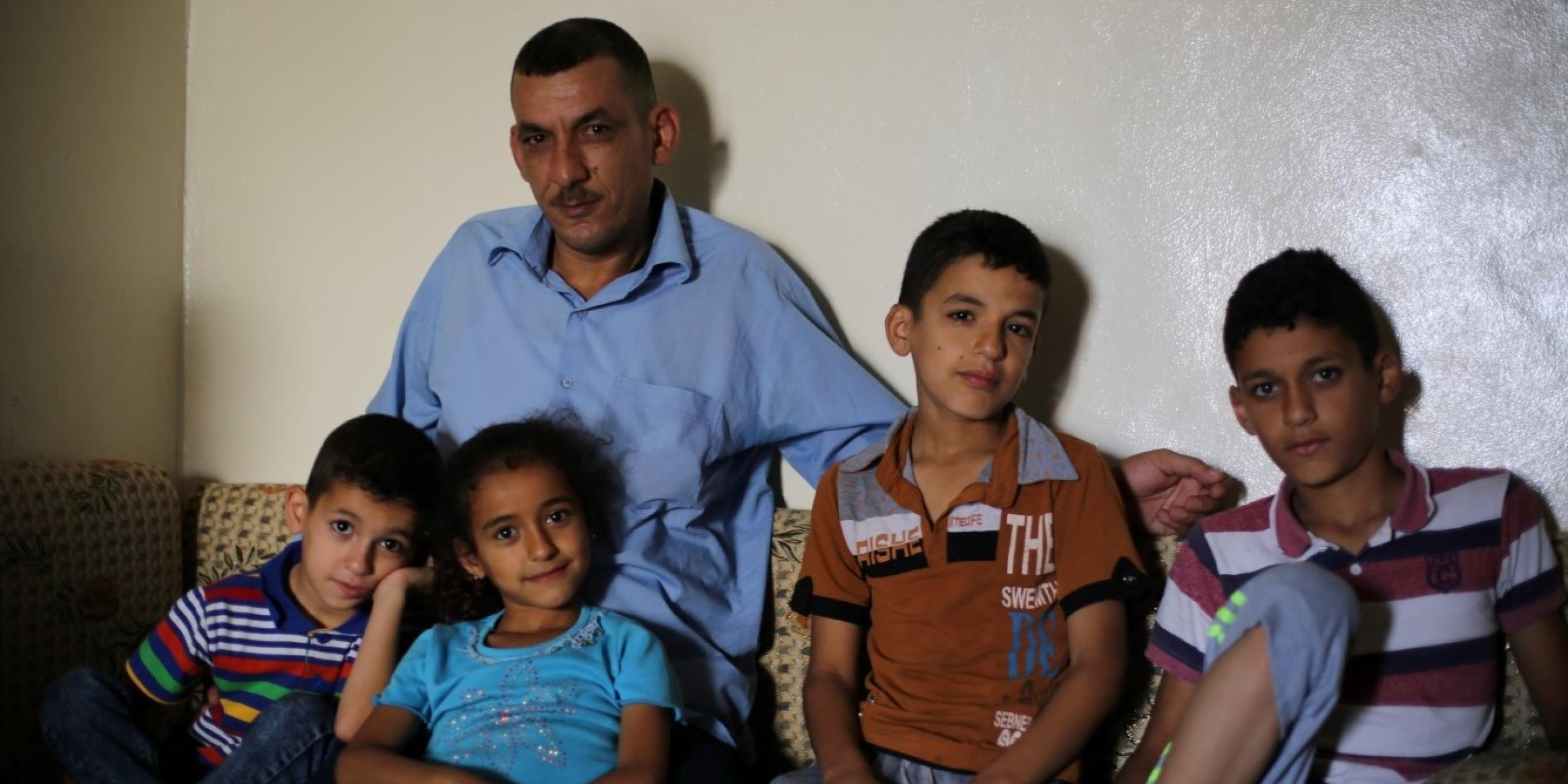
“It was the perfect life,” Ameen sighs wistfully. His home, his land, his car, his young family. But now it’s all gone.
Ameen and his wife fled to Jordan in 2012, when their home was bombed in an attack on their village. That was just the beginning of their troubles.
Five years later, they’re still living in exile. Along with more than 650,000 Syrian refugees in Jordan, Ameen and his wife are struggling to recover and move on. Like many other refugees, they have limited access to essential services – like proper housing, medical care, work and education for their children. Many refugees survive on humanitarian assistance, with close to 90 per cent living under the national poverty line.
A son with no citizenship
Back in 2012, they had nearly made it to safety when Ameen’s wife gave birth on the Syrian-Jordanian border. Because of this, the parents couldn’t get a birth certificate for their new-born son from either country.
This isn’t a coincidental problem. There are 15 million stateless people around the world today, with no recognised citizenship or identity documents. Displaced people are particularly susceptible to becoming stateless, as in the case of Ameen’s son. Without papers, they’re denied the most basic of rights.
Ameen translates what this means for him and his son: “Because he’s not formally registered with the Jordanian authorities, it is hard to enrol him in school or to seek medical help.”
Even Jordanians struggle to find a job in Jordan. If I was able to find work, I would work.
Difficult to find work
In Jordan, job opportunities are limited.
In August 2017, Jordan introduced new procedures that made more work permits available for Syrian refugees in the country. But the country’s infrastructure is already strained, and the labour market simply cannot handle the explosion of eligible workers. Ameen was working as a street cleaner, but his contract ended.
“Even Jordanians struggle to find a job in Jordan,” Ameen says. “If I was able to find work, I would work.”
Resettlement: a glimmer of hope
As opportunities dwindled for Ameen to support his family in Jordan, he turned to the option of resettlement.
As resettled refugees, his family would be able to live peacefully and fully enjoy the rights of permanent residency. They could start anew.
Ameen was eventually invited to a first interview with the United States immigration committee. “I had my first interview in March,” says Ameen. “I was told that I would have another interview soon.”
But his hope was short-lived.
When US President Donald Trump issued an executive order on immigration and refugee resettlement, Ameen’s interview was postponed until further notice.
Ameen is now searching for another country willing to resettle him and his family. He refuses to consider putting his family on a boat to go to Europe. And he won’t endanger them by returning to Syria.
“I just want a better life and future for my children,” he says. “Anywhere in Europe will be good. Sweden, Germany or Norway.”
Temporary relief
As Ameen pursues other resettlement avenues, his family is now able to access health services and find school for their son with support from the Norwegian Refugee Council’s (NRC) legal team.
Our legal assistance experts helped Ameen obtain his ministry of interior card (MOI card), which allows Ameen and his family to access public services, including health and education.
With support from our shelter experts, Ameen was able to renew his lease. He arranged an agreement between NRC and the landlord which states that he will be free of rent for an agreed on timeframe.


